World Cup 2014: How Microsoft beat Google with match predictions
World Cup shows how far predictive analytics has come
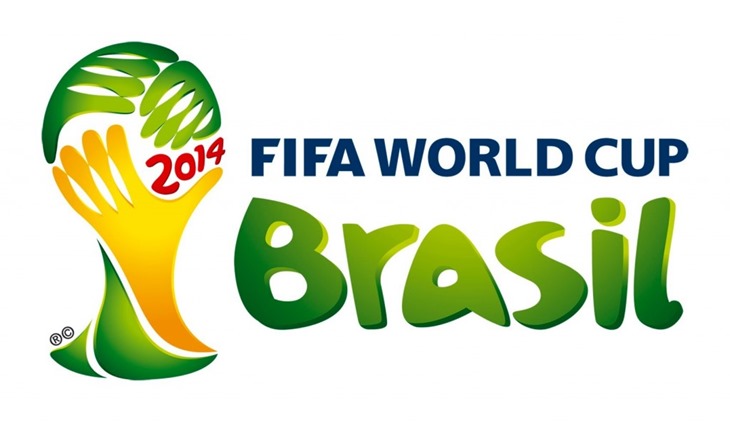
The 2014 World Cup ended with Germany winning its 4th title after one of the most thrilling sporting tournaments ever.
Not only did the competition captivate billions around the globe, but it's been a showcase for predictive analytics.
Google and Microsoft were on hand to fill the void left by the Nostradamus-like Paul the Octopus (RIP), which shot to fame during the 2010 World Cup for his correct predictions.
Both Google and Microsoft correctly foresaw that Germany would beat Argentina in the final.
Impressively, Microsoft edged the soothsaying competition by making 15 out of 16 correct predictions in the knockout stages compared to Google's 14 out of 16.
So how did they do it?
The web giant used multiple seasons' worth of statistics from sports data company Opta as a starting point.
Get the ITPro daily newsletter
Sign up today and you will receive a free copy of our Future Focus 2025 report - the leading guidance on AI, cybersecurity and other IT challenges as per 700+ senior executives
"We combined this modeling with a power ranking of relative team strength developed by one of our engineers, as well as a metric to stand in for home-team advantage based on fan enthusiasm and the number of fans who had traveled to Brazil," Benjamin Bechtolsheim, product marketing manager of the Google Cloud Platform explained in a blog post.
The firm gathered all the relevant data using Google Cloud Dataflow and then used Google BigQuery to analyse it.
Google got two predictions incorrect. The firm tipped France to knockout Germany in the quarter-finals and also thought Brazil would regroup to beat Holland in third-place play-off.
However, when it came to the most important game of the tournament, Google provided an eerily accurate prediction.
"Drumroll please Though we think it's going to be close, Germany has the edge: our model gives them a 55 percent chance of defeating Argentina," Bechtolsheim noted two days before the final.
"Both teams have had excellent tournaments so far, but the model favours Germany for a number of factors. Thus far in the tournament, they've had better passing in the attacking half of their field, a higher number of shots (64 vs. 61) and a higher number of goals scored (17 vs. 8)."
Microsoft
Meanwhile, Microsoft was coming off the back of successfully predicting the outcomes of reality TV shows like American Idol with its Bing Predicts tool. Microsoft recognised that it would have to adapt its algorithms to make the predictive tool suitable for the World Cup.
"The process of predicting outcomes of sporting events is unlike voting show predictions, as popularity and some sentiment signals do not play similar roles in determining who wins a contest," it explained in a Next at Microsoft blog post.
"Rather, the actions and performances of a handful of individuals solely determine who wins, loses, or ties."
Microsoft appeared to get the edge over Google by pulling in data from a wider pool. The firm took into account:
- The win/loss/tie record during qualification matches and other international competitions, along with the margin of victory.
- Home advantage, location (proximity of South American teams), playing surface (hybrid grass) and game-time weather conditions.
- Microsoft also used data from betting firms to leverage the wisdom of the crowds'.
Microsoft's system predicted that Brazil would beat Holland in the third-place play-off, much like Google.
When asked about the result of the final, the firm's Cortana voice assistant delivered three specific answers all backing Germany - although not quite as comprehensively as Google:
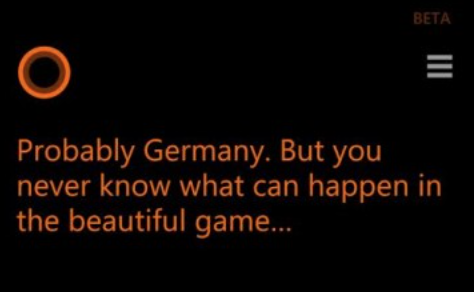
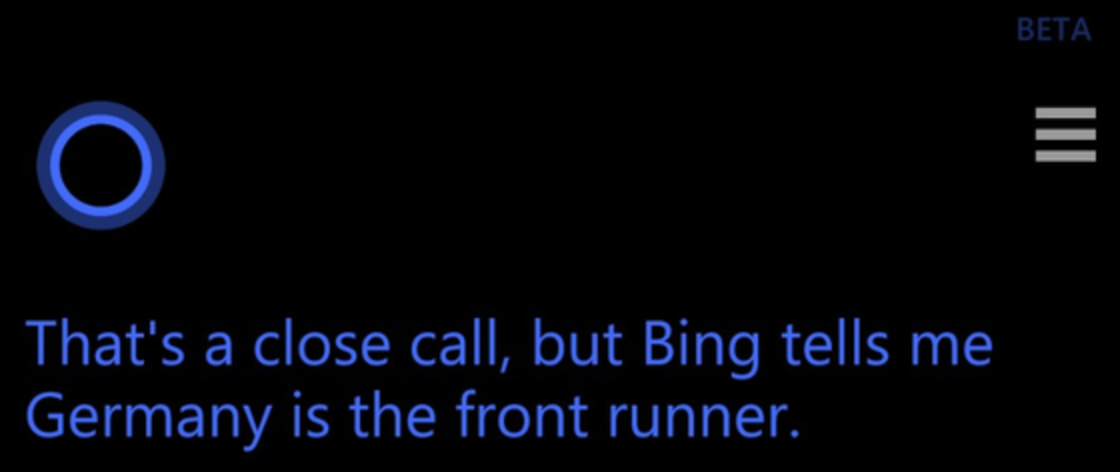
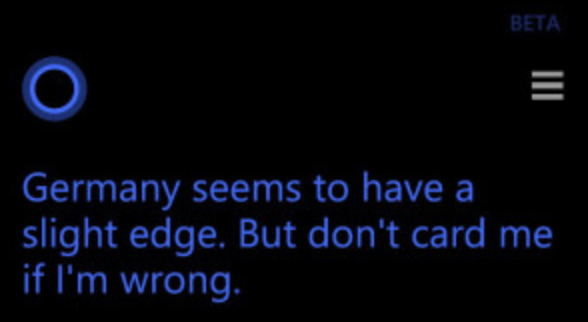
The future
The firms stopped short of predicting the exact scorelines during matches, which would have been an astonishing feat. Shock results were never too far away in Brazil. Holland dismantled the reigning champions Spain 5-1 in the opening weekend and Germany demolished Brazil 7-1 in the semi-final.
However, by the time Russia 2018 arrives, it wouldn't be surprising to see the firms take on the challenge of predicting the score.
-
 Women show more team spirit when it comes to cybersecurity, yet they're still missing out on opportunities
Women show more team spirit when it comes to cybersecurity, yet they're still missing out on opportunitiesNews While they're more likely to believe that responsibility should be shared, women are less likely to get the necessary training
By Emma Woollacott
-
 OpenAI's new GPT-4.1 models miss the mark on coding tasks
OpenAI's new GPT-4.1 models miss the mark on coding tasksNews OpenAI says its GPT-4.1 model family offers sizable improvements for coding, but tests show competitors still outperform it in key areas.
By Ross Kelly
-
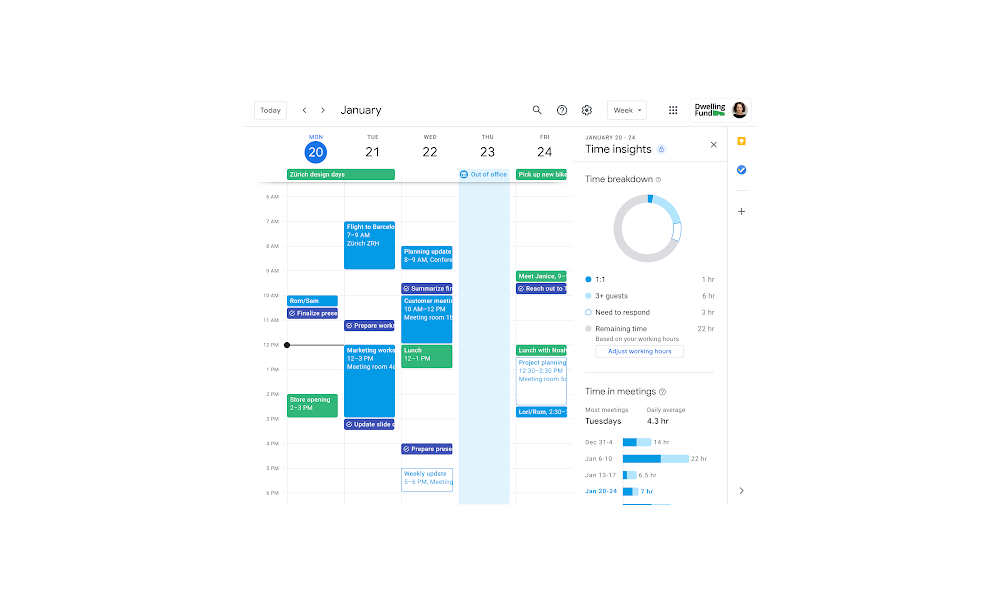 Google Calendar now gives greater insight into your workday
Google Calendar now gives greater insight into your workdayNews End users should see the Time Insights update as early as September 16
By Justin Cupler
-
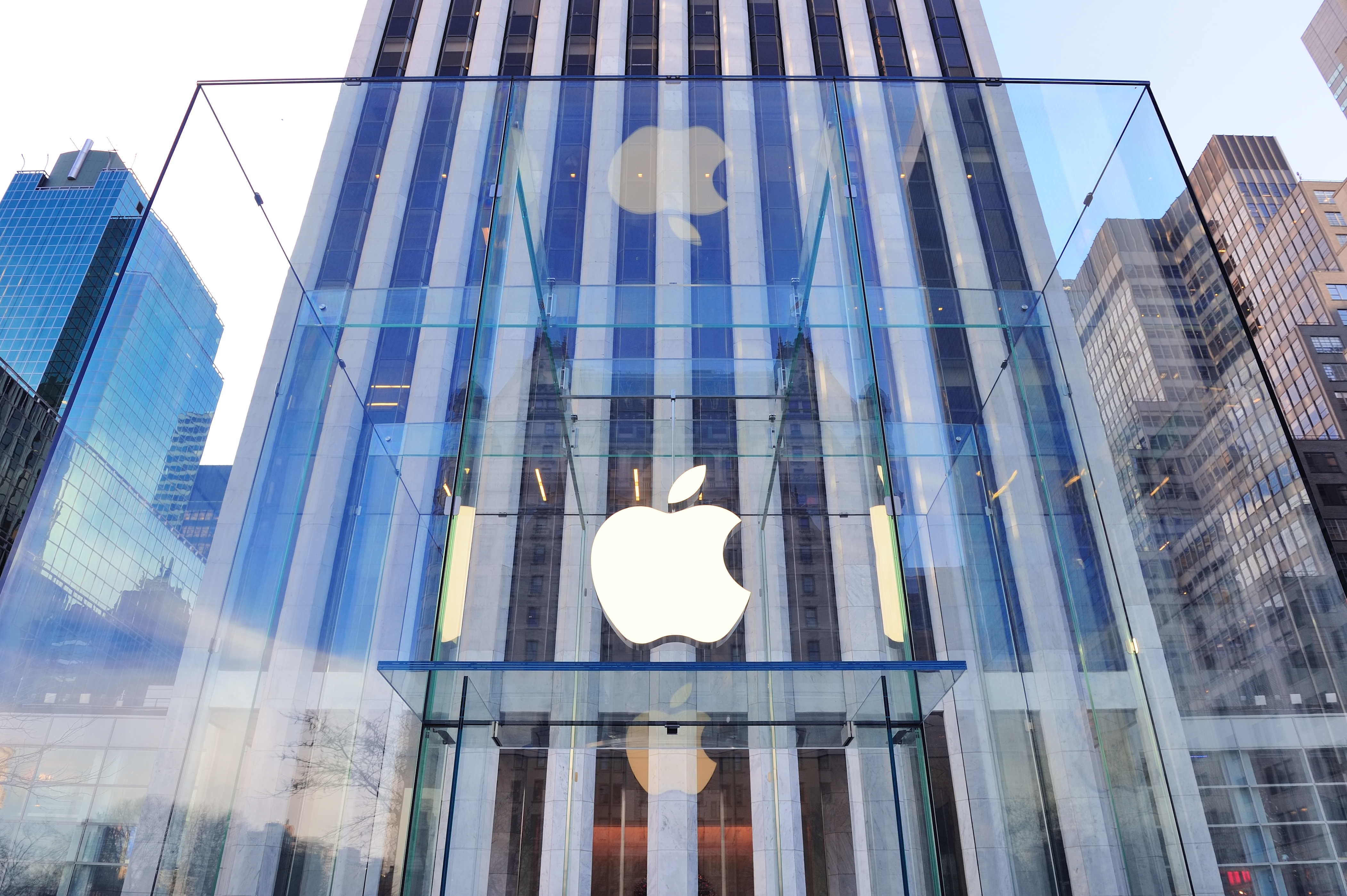 Apple doubles down in the US with $430 billion investment
Apple doubles down in the US with $430 billion investmentNews The company pledges billions for jobs, research, infrastructure, and a new campus
By Danny Bradbury
-
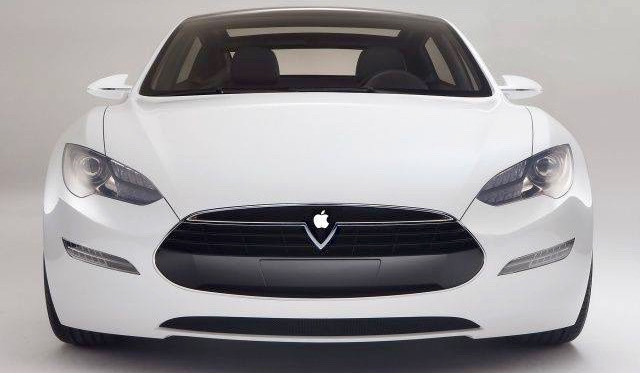 Apple car: Former Apple employee charged with stealing Apple's self-driving car secrets
Apple car: Former Apple employee charged with stealing Apple's self-driving car secretsNews Xiaolang Zhang downloaded Project Titan data and took hardware from the company's campus, FBI claims
By Clare Hopping
-
 The best business intelligence tool: Tableau vs Microsoft Power BI
The best business intelligence tool: Tableau vs Microsoft Power BIVs We put two of the best BI packages on the market head to head
By Adam Shepherd
-
 Will Microsoft Edge actually get some good extensions?
Will Microsoft Edge actually get some good extensions?News Redmond shares Edge browser plans for 2016
By Aaron Lee
-
 British Airways opens up flight data to boost innovation
British Airways opens up flight data to boost innovationNews BA wants developers to find easier ways for customers to search and book flights
By Joe Curtis
-
 Apple's market value exceeds Microsoft's during 1999 bubble
Apple's market value exceeds Microsoft's during 1999 bubbleNews Tech giant becomes most valuable company, but Microsoft still holds overall record
By Edwin Chan
-
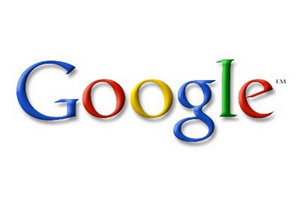 Google accused of 'scalping' Kenyan businesses
Google accused of 'scalping' Kenyan businessesNews Mocality says its database was raided by Google, claiming the internet giant lied about their relationship.
By Tom Brewster